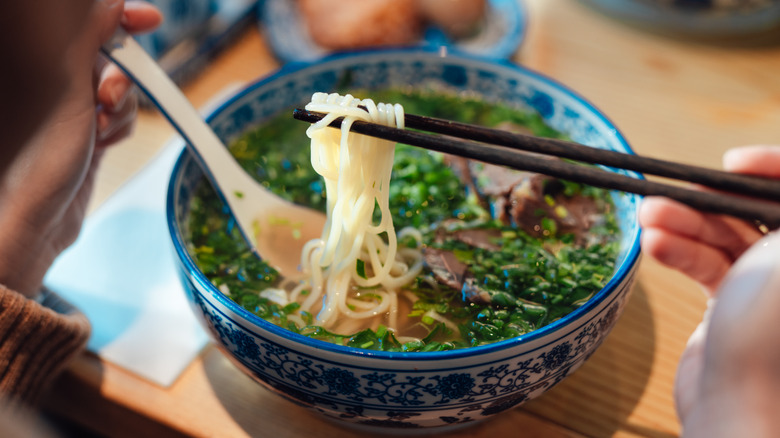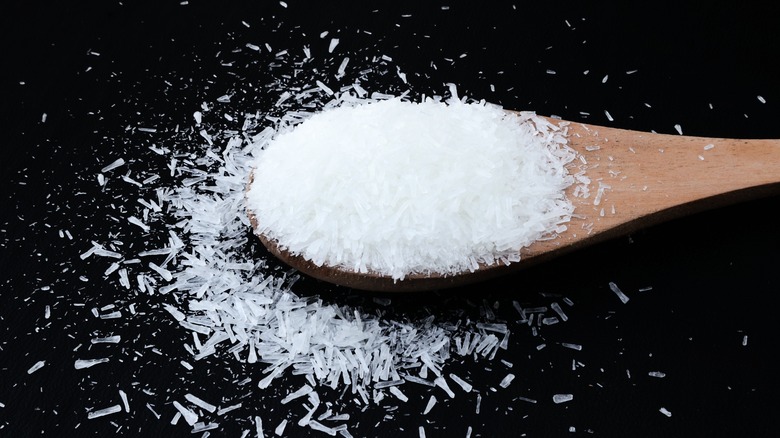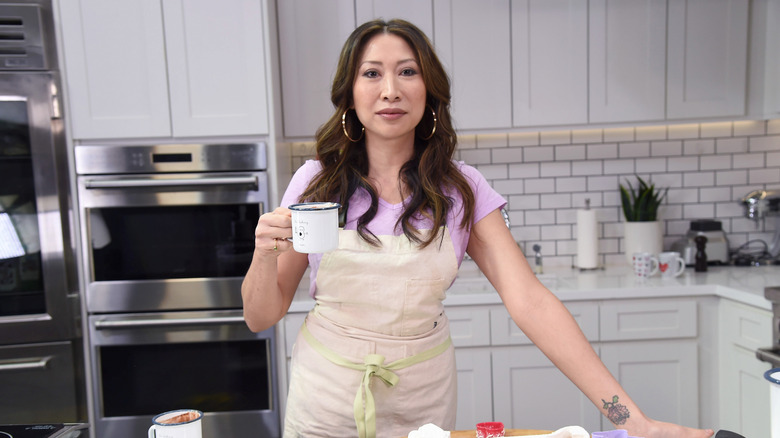Chinese Restaurant Syndrome: The Racist Myth And How Asian Cookbook Authors Are Dismantling It
We may receive a commission on purchases made from links.
While Chinese food has become an ubiquitous and multi-faceted part of the American culinary landscape, that wasn't always the case. Its history here has been colored with misunderstandings and misinformation. And for gen Xers and millennials growing up, it's very likely that you didn't eat at Chinese restaurants in America without hearing of 'Chinese Restaurant Syndrome' (CRS) and the dangers of eating MSG.
The term was coined in 1968 in a letter published in the New England Journal of Medicine (NEJM) to describe a set of symptoms like headaches and heart palpitations some people claimed to experience after eating Chinese food made with monosodium glutamate. While the letter was eventually determined to be fraudulent and completely false, the racist notions it put forth have had lasting impacts. And in the decades that followed, it has helped to perpetuate stigma and mistrust against MSG and Chinese/Asian food, even though the Food and Drug Administration has long determined MSG is not really bad for you and is safe to consume.
The time for reckoning is upon us. Chefs and activists around the country are demanding accountability and an end to the harmful stereotypes of Chinese cuisine and culture. To be transparent, I am one of those activists, and feel deeply connected to this issue. For the longest time, I too thought MSG was unsafe for me, even though I never experienced CRS symptoms. I also grew up being ashamed of being Chinese. I remember as a child walking the streets of Coney Island, an adult shouted at me to, "Go back to China and take your Chinese restaurants with you."
It's 2024 and there's no place for racism or unfounded stigma in the food world. It's time to put these misconceptions to rest, celebrate Asian cuisine, and embrace the truth about MSG.
So what is the truth about MSG?
To understand why these myths and misconceptions are so harmful and ignorant, let's first address the real truth behind MSG. It is not a poisonous or toxic artificial substance. It is a naturally derived food additive that is similar in nature to salt. In fact, it is actually made from the same compound as salt, sodium, with added umami flavor thanks to glutamic acid, which is made from fermented sugarcane or molasses. The finished product can be used in a range of dishes to add a rich umami flavor.
Of course, it is still possible people have food sensitivities to MSG (much like any other ingredient), but time and time again, it has been proven that MSG is safe to consume and stock in your pantries for a myriad of cooking uses. Unfortunately, the term CRS was born out of racial bias, unfairly singling out Chinese food for its use of MSG, even though its main ingredient, glutamate, is naturally present in foods like tomatoes and cheese which are heavily featured in many different cuisines. As celebrity chef Clarice Lam, author of "Breaking Bao" pointed out, "it's actually in a lot more food and snacks than you think, and yes even American snacks like Pringles have MSG." But these western foods aren't unfairly stigmatized. And get this, our bodies process glutamate the same way, whether it's from MSG or found naturally in foods like scallops, meats, and mushrooms.
Asian chefs and authors are reclaiming the narrative around MSG and Asian Food
As a cookbook author and food journalist, I am passionate about dismantling the harmful stereotypes surrounding the term CRS and the stigma against MSG and Chinese/Asian food culture that has stemmed from it. Many fellow Asian American cookbook authors share this same commitment to challenging these misconceptions and reclaiming the narrative around our cuisine.
"Terms like 'Chinese Restaurant Syndrome' perpetuate the idea that Chinese food is unhealthy, dirty, and full of weird ingredient," notes chef Lam, adding "One of the reasons I wrote 'Breaking Bao' was to make Asian ingredients and flavors more approachable and relatable to the general public."
When asked about how she felt about the term CRS, Betty Liu, surgical resident and author of "The Chinese Way," stated, "Words have power, and when they're published by one of the 'gold standard' peer-reviewed medical publications [such as the NEJM], they make reverberations. The harmful effects of MSG have since been debunked, but we're still seeing the impacts of the original 'syndrome.'" As part of the effort to combat this, Liu proudly shares Chinese recipes through her social media, two cookbooks and Substack.
On his website, "Top Chef" alum, Tu David Phu, author of "The Memory of Taste," openly addresses racism against Asian food and ingredients, like fish sauce, soy, and seafood dishes. "These myths [about MSG] come from outdated, racist stereotypes about Asian food and culture, and it's time to set the record straight." By reclaiming the narrative and educating others, these cookbook authors are not only restoring pride in Asian cuisines but also opening the door for home cooks to embrace MSG as a safe flavor enhancer in their own kitchens.
Fighting the stigma against CRS is a prolonged effort
These days, I always have MSG stocked up in my pantry. In fact, for the past few years now, I've incorporated MSG into my home cooking and baking in more ways than I ever thought possible. It has not been an easy journey to get here. Ironically, my mother is Chinese and it took me a long time to get her to feel comfortable with using MSG in her own cooking. For a brief period, I would lie to her that I didn't use MSG in my homemade dumplings and dim sum, but she could always tell, from how umami-rich my food tasted.
I've gradually changed her mind about MSG. And together this Thanksgiving, we even plan to upgrade some of our holiday dishes, like roasted turkey, with MSG. For end-of-year celebrations, I'll be adding an instant umami punch to cocktails and mocktails with MSG (if you're looking for more inspiration, try adding MSG into your next martini to make it extra dirty).
As more people learn the truth about MSG, the clearer it becomes: the term Chinese Restaurant Syndrome was built on fear and racial bias and that perception needs to be changed once and for all. Us Asian cookbook authors, as underrepresented as we still are, can only do so much. While the NEJM has pledged to review and acknowledge the role it has played in perpetuating slavery and racism against black Americans throughout its history, it has made no such efforts to fully address its role in perpetuating racism against Chinese and Asian food culture through coining the term CRS. It is time for the NEJM to take responsibility, acknowledge the harm it has caused, and address the stigma it continues to perpetuate. For the rest of us, we can fight the stigma right from our own kitchens — and reap the tasty rewards.



